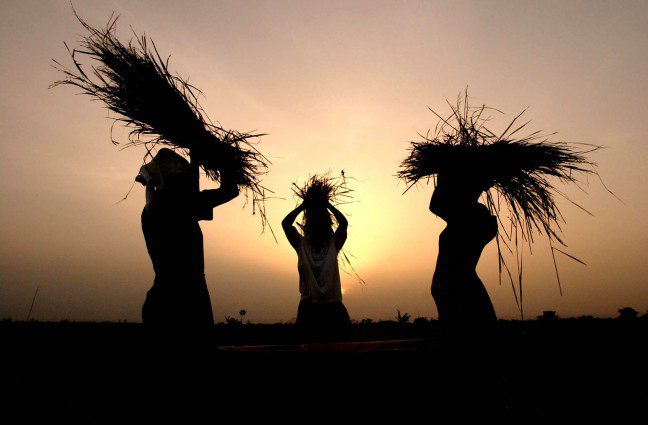GET OUT
You’ve got two minutes to get your things and get out. Stop crying. There’s nothing you can do. Say goodbye to your home. It’s gone.
Not what you would expect from an Oxfam campaign? Sadly, as banks and private investors scramble to buy land in the developing world, stories of poor farmers and communities driven from their homes, often at the barrel of a gun, left destitute and unable to feed their families have become all too familiar. We would not accept this happening in the developed world, and so we will not accept it in the developing world. That’s why Oxfam’s GROW Campaign is launching a new action to put the breaks on the global land rush that is causing vulnerable people to lose their homes and livelihoods.
The scramble for land is vast and happening across the developing world. In poor countries, foreign investors have been buying an area of land twice the size of Mexico City every five days. In Liberia more than 30 per cent of land has been handed out in large-scale concessions in the past five years, often with disastrous results for local people. Alfred Brownell, community spokesperson in Liberia, says “You don’t need guns to kill people. When you take food from a village by destroying farm lands and cash crops, you are starving its people. These things must stop. Our people deserve the right to survive. They shouldn’t be denied their land.”
While responsibility for land-grabbing lies with many – from governments to private investors – the World Bank has the power to change the terms of the debate. It is an international institution that provides a vital source of finance to developing countries around the world and a huge player on the global land scene. Not only does it act as a standard-setter for other investors and as a policy advisor to developing country governments, but its own investments in agriculture tripled in the last decade: from $2.5bn in 2002 to $6-8 bn in 2012. While such an increase is welcome, it needs to be invested in a way that protects the rights of local people. In recent years, however, 21 formal complaints have been brought by communities affected by World Bank investments that they say have violated their land rights.
The World Bank can play a key role in stopping the global land rush by freezing its own investments in large scale land acquisitions for six months and putting its own house in order. In this time, we ask the Bank to set standards — that other investors should follow too — to ensure that no large-scale land deals are done to the detriment of the people living on the land.
The Bank should also make land deals more transparent so that investors can be held accountable to communities and local governments. And it should ensure community consent for projects it invests in, as well as playing a positive role in promoting land rights and good land governance.
In the coming months many people around the world will be kicked off their land unless action is taken now. With your help we can put pressure on the World Bank to take that vital first step to reining in the global scramble for land.

